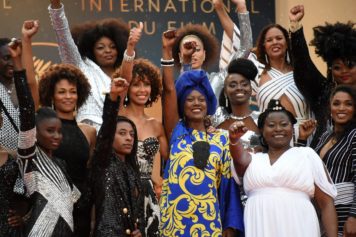CANNES, France — In 1995, actor Will Smith begged producer Jerry Bruckheimer to let him go to the Cannes Film Festival to promote “Bad Boys,” despite the parent studio’s insistence that a black actor would not get any traction with the international fans and journalists thronging the city’s beach-side promenade, the Croisette.
Bruckheimer and Columbia Pictures eventually relented: Smith traveled to Cannes, held a news conference, threw a huge MTV party, charmed dozens of interviewers — and “Bad Boys” earned $140 million, nearly half of it overseas. Smith, who would systematically repeat that model in markets from Moscow to Johannesburg, emerged well on his way to international stardom.
As the 66th edition of Cannes gets underway Wednesday, Smith’s example has taken on new resonance — and urgency. For years, black filmmakers, or anyone interested in making movies starring or about black people, have been told “Black doesn’t travel,” the assumption being that the African-American experience is too specific to be comprehensible, or commercial, anywhere but in the United States.
But some films coming to Cannes this year are poised to challenge the no-foreign-market assumption: “Sexual Healing,” a drama about the personal and creative resurgence of American singer Marvin Gaye starring Jesse L. Martin, will be in the hunt for international distribution at Cannes, its production having just begun in Ostend, Belgium, where the story is set.
Producer Frederick Bestall admits that financing was difficult to pull together for “Sexual Healing” and that casting a non-superstar in the lead “has its drawbacks” for international sales. But he’s cautiously optimistic that the film will find distributors outside the United States. Noting that Gaye sold more than 100 million records worldwide and that “Sexual Healing” will center on the singer’s relationship with Belgian promoter Freddy Cousaert, Bestall said, the film’s “human-relationship aspects transcend the concept of a black movie per se. I believe if the story is powerful enough and touches the human-nature side of [the story] rather than the race aspect, the film should do well.”
Read More: washingtonpost.com


